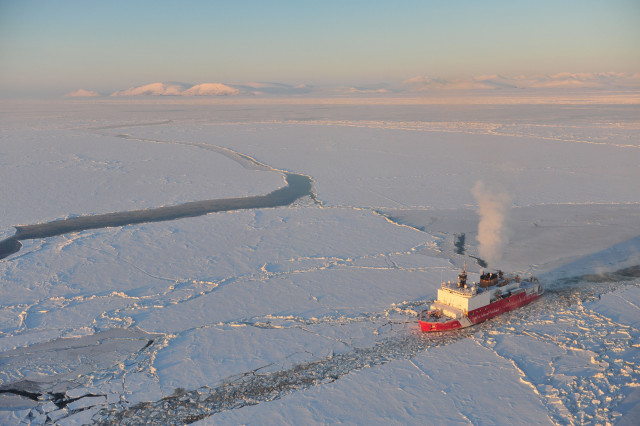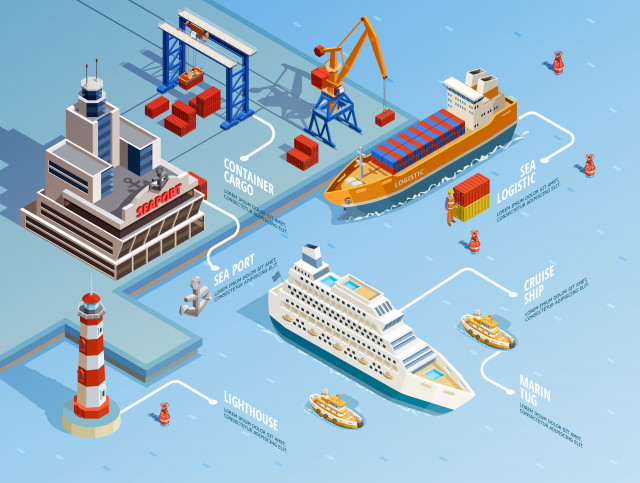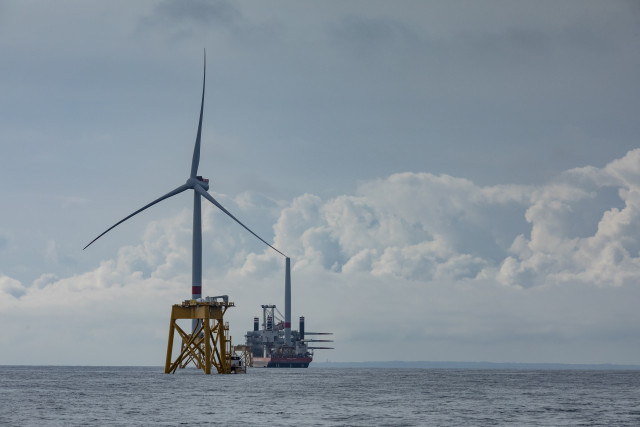Call for panellists now open
- Campus de la mer is organizing its 14th Sea Tech Week from October 15 to 17, 2024. The call for panellists is open!
Sea Tech Week is an international event that brings together over 1,200 marine science and technology experts every two years. Its multi-faceted format (conference, B2B meetings, exhibitions) makes it a not-to-be-missed event for professionals, researchers, students and engineers in the marine field.
Call for panellists
For this year's event, contributions should focus on issues related to maritime safety and security (cyber security, port activities, offshore energies, drones, submarine cables, environment, etc.).
Proposed workshops
Maritime safety and security in the polar oceans organised by Unversité de Bretagne Occidentale and Nord University
This workshop addresses rising risks in Arctic and Antarctic waters from increased traffic, focusing on safety for people and the environment. Challenges in rescue and pollution response in these areas are discussed. Topics include maritime safety, the Polar Code, and strategies to improve navigation safety. Emphasis is on multi-stakeholder collaboration, sharing field experiences, and developing new strategies for maritime safety and security.
© Defense Visual Information Distribution Service Drones and digital technologies for observation organised by Cerema
Presentation of innovative drone and robot technologies, on-board sensors and associated data processing, in particular for maritime and coastal applications.Maritime innovation and IP strategy organised by Germain Maureau
The aim of this workshop is to provide an overview over the patent strategies already carried out by various players in several technical fields in the marine sector (offshore energy, ships, cybersecurity, defence, autonomous vehicles, prospecting, environment, etc.). We will then focus on the specificities of patent law in direct relation to the marine environment and outline an IP strategy tailored to each technical field of the marine sector.
© Macrovector Maritime safety during construction phase of an Offshore Windfarm in France: Challenges and actions organised by Iberdrola France
Construction of an Offshore wind farm is involving thousands of people at sea, in a maritime environment where other sea users can be present.
In France the Maritime prefect is responsible for safety at sea, but the operator is of course responsible for its own activities.
This workshop aims at presenting actions taken and emphasis on the roles of each to ensure safety at sea during an OWF construction, focusing on the example of the OWF of Saint-Brieuc.
©Ailes Marines ©Cbeyssier Impact of connected systems and AI on the safety and security of navigation organised by Ecole Navale
In order to increase navigation safety, ships are equiped with high technology and connected systems designed to support the Officer Of the Watch (OOW) to realize datas treatment, specifics tasks or even make the right decision based on help provided by Artificial Intelligence. Also, the cooperation between the OOW and the system is essential in order to insure maximum efficiency. However, the complexity of the system could be a reason for the misunderstanding of information between the operator and the system itself.
Therefore, workshop goals are to identify how complex systems impact navigation safety and to find a relationships between the OOW and the system which would increase navigation safety and security. The workshop will propose a forward-looking vision on the systems of tomorrow.Deep Sea Monitoring organised by IEEE OES French chapter
Nowadays, it appears that the matters of seabed warfare and the defense of undersea infrastructure have emerged as a topic of interest. But achieving undersea structures survey, where the ocean water column is deeper than about 1000 meters, remains a challenge.
This workshop is dedicated to the new developments which can be useful for deep sea exploration, from UUV to DAS technologies, with a key point on underwater communications.Shared Use of Marine Aids to Navigation organised by Direction InterRégionale de la Mer Nord-Atlantique, Manche-Ouest
As the needs of users evolve, an increasingly in-depth knowledge of the marine environment is needed. Aid to Navigation Equipments (AtoN) often have characteristics or are located in sites that may be of interest for "opportune" uses. The DIRM responded on a case-by-case basis to requests for shared use of these AtoN (use of space in lighthouses, data acquisition, etc.). It implements a proactive policy in terms of sharing this equipments.Drones and digital technologies for maritime observation organised by Cerema
Presentation of innovative drone and robot technologies, on-board sensors and associated data processing, in particular for maritime and coastal applications.
Interested?
Please fill in this form and specify which workshop you would like to join! (see list above)
Details
This call for panellists is open until March 29th (entended deadline). We'll get back to you after this date to let you know whether or not your presentation has been selected.
- Know more






